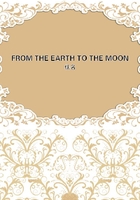
第49章
It was the 22nd of November; the departure was to take place in ten days. One operation alone remained to be accomplished to bring all to a happy termination; an operation delicate and perilous, requiring infinite precautions, and against the success of which Captain Nicholl had laid his third bet. It was, in fact, nothing less than the loading of the Columbiad, and the introduction into it of 400,000 pounds of gun-cotton. Nicholl had thought, not perhaps without reason, that the handling of such formidable quantities of pyroxyle would, in all probability, involve a grave catastrophe; and at any rate, that this immense mass of eminently inflammable matter would inevitably ignite when submitted to the pressure of the projectile.
There were indeed dangers accruing as before from the carelessness of the Americans, but Barbicane had set his heart on success, and took all possible precautions. In the first place, he was very careful as to the transportation of the gun-cotton to Stones Hill. He had it conveyed in small quantities, carefully packed in sealed cases. These were brought by rail from Tampa Town to the camp, and from thence were taken to the Columbiad by barefooted workmen, who deposited them in their places by means of cranes placed at the orifice of the cannon. No steam-engine was permitted to work, and every fire was extinguished within two miles of the works.
Even in November they feared to work by day, lest the sun's rays acting on the gun-cotton might lead to unhappy results. This led to their working at night, by light produced in a vacuum by means of Ruhmkorff's apparatus, which threw an artificial brightness into the depths of the Columbiad. There the cartridges were arranged with the utmost regularity, connected by a metallic thread, destined to communicate to them all simultaneously the electric spark, by which means this mass of gun-cotton was eventually to be ignited.
By the 28th of November eight hundred cartridges had been placed in the bottom of the Columbiad. So far the operation had been successful! But what confusion, what anxieties, what struggles were undergone by President Barbicane! In vain had he refused admission to Stones Hill; every day the inquisitive neighbors scaled the palisades, some even carrying their imprudence to the point of smoking while surrounded by bales of gun-cotton.
Barbicane was in a perpetual state of alarm. J. T. Maston seconded him to the best of his ability, by giving vigorous chase to the intruders, and carefully picking up the still lighted cigar ends which the Yankees threw about. A somewhat difficult task! seeing that more than 300,000 persons were gathered round the enclosure. Michel Ardan had volunteered to superintend the transport of the cartridges to the mouth of the Columbiad; but the president, having surprised him with an enormous cigar in his mouth, while he was hunting out the rash spectators to whom he himself offered so dangerous an example, saw that he could not trust this fearless smoker, and was therefore obliged to mount a special guard over him.
At last, Providence being propitious, this wonderful loading came to a happy termination, Captain Nicholl's third bet being thus lost. It remained now to introduce the projectile into the Columbiad, and to place it on its soft bed of gun-cotton.
But before doing this, all those things necessary for the journey had to be carefully arranged in the projectile vehicle.
These necessaries were numerous; and had Ardan been allowed to follow his own wishes, there would have been no space remaining for the travelers. It is impossible to conceive of half the things this charming Frenchman wished to convey to the moon.
A veritable stock of useless trifles! But Barbicane interfered and refused admission to anything not absolutely needed.
Several thermometers, barometers, and telescopes were packed in the instrument case.
The travelers being desirous of examing the moon carefully during their voyage, in order to facilitate their studies, they took with them Boeer and Moeller's excellent _Mappa Selenographica_, a masterpiece of patience and observation, which they hoped would enable them to identify those physical features in the moon, with which they were acquainted.